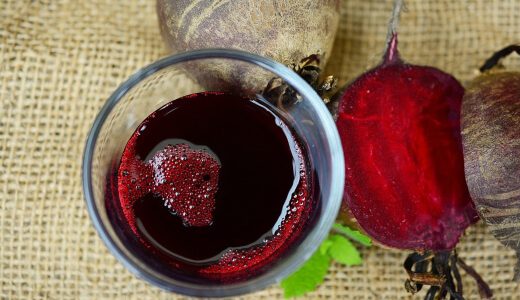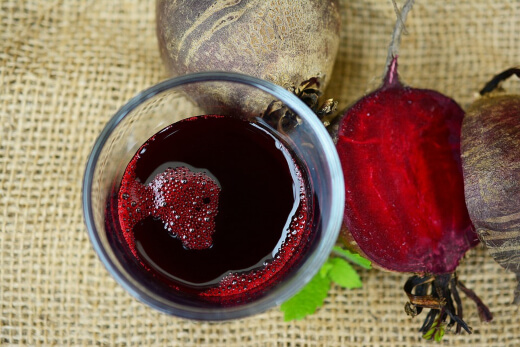
Since beginning juicing, we have been taking time to review various fruits and vegetables and their individual benefits for our health. Every fruit and vegetable bring another unique set of benefits and beetroot is no different. This time we will take an in-depth look at beetroot juice health benefits for your body.
Beetroot juice health benefits are far-reaching. Beetroot juice provides a host of essential vitamins, minerals, and other nutrients necessary for optimal health. There are many different fruits and vegetables to choose from when planning your juice drinks and beetroot is a great one to consider adding in to your health plan.
We will take a close look at the many beetroot juice health benefits both for overall health and weight loss.
Continue reading to find out more about beetroot juice health benefits.
Beetroot: A Powerhouse of Essential Nutrients
Beetroot juice contains a multitude of vitamins, minerals and other essential nutrients. We’re going to look at many of these nutrients individually and explore what they do for our bodies to keep us healthy to discover a number of beetroot juice health benefits.
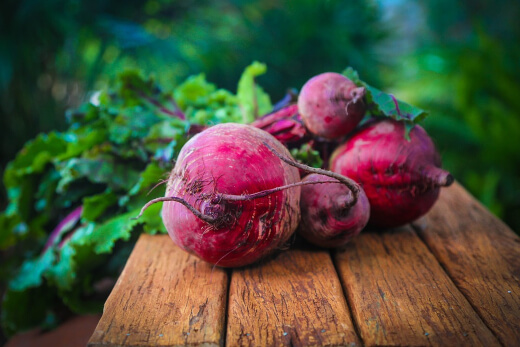
Beetroot Juice Health Benefits
Nitrates are possibly one of the most important compounds in beetroot. Nitrates help lower blood pressure, improve stamina for exercise and other activities, and slow or even prevent dementia. Why? Nitrates become nitric acid upon consumption. Nitric acid helps to widen blood vessels and relax them, allowing blood to flow smoothly through veins and arteries.
Betalaines, responsible for giving beets their color, are an antioxidant that has been shown to have preventive capabilities against some types of cancer.
Potassium is an electrolyte mineral hat promotes the functioning of nerves and muscles. Most of us have likely felt the effects of low potassium at least once in our lives.
Calcium is a mineral that is necessary for healthy bone growth and maintenance. Your heart, muscles and nerves also need calcium. Low calcium can cause osteoporosis.
Iron is mineral that is important for several reasons. Iron helps to promote energy, focus and cognitive function. It also promotes proper function of vital processes such as oxygenation of your blood, digestion, a healthy immune system and body temperature regulation.
Magnesium is an essential nutrient that is extremely important for enzymes in your body to function properly. Magnesium helps to activate Vitamin D which is essential for bone health. Additionally, magnesium assists your body in absorbing calcium properly.
It lowers the risk of Type 2 Diabetes, helps to prevent migraines, reduces the symptoms associated with Premenstrual Syndrome, promotes a healthy heart, and lowers anxiety.
Manganese, while only needed in trace amounts, is required for several vital physiological systems. Manganese helps increase bone density, especially helpful as both men and women age and lose bone mass. It reduces the risks caused by harmful free radicals. It reduces inflammation, regulates blood sugar, and improves brain function.
Phosphorous is a mineral occurring in every single cell in your body. It also makes up ONE PERCENT of your total body weight. It is needed for your bones and teeth to be formed properly. It is vital for how your body uses carbohydrates, fats and produces proteins. It assists the B vitamins for properly functions kidneys, muscles, heart rhythm, and communication with the nervous system.
Fiber helps to regulate bowel functions and increases white blood cells.
Glutamine is a naturally occurring amino acid in your body. It aids in digestion and promotes your immune system. Probably most spectacularly is its ability to aid other processes and organs when they are distressed by carrying essential compounds to them.
Betaine
Among the many beetroot juice health benefits is betaine. Betaine, originally discovered in beets, can be found in other sources, but is most commonly associates with beets. Betaine is an amino acid, also called TMG.
Betaine aids digestion by promoting production of stomach acids needed for proper absorption of nutrients and helps control candida. Betaine has many cardiovascular benefits by controlling homocysteine levels and protects arteries from hardening.
Betaine helps prevent fatty deposits in your liver. Or, if you already have them, helps to reduce them. These fatty deposits can lead to fatty liver disease. Betaine also helps to protect your liver from harmful chemicals and toxins.
Betaine also has been shown to increase muscle mass and reduce fat because of the way it works to metabolize proteins. Betaine is gaining traction in the exercise supplement field, similarly to creatine. Betaine is a unique amino acid and just one of the many beetroot juice health benefits to consider.
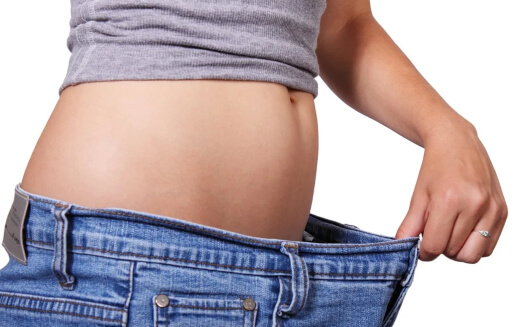
Benefits of Beetroot for Weight Loss
What other beetroot juice health benefits exist? What are the benefits of beetroot for weight loss?
Beetroots aid in weight loss for a few different reasons. One is that beetroot is full of nitrates. Nitrates improve cell’s energy use leading to more efficient oxygen use during workouts. This helps people to be able to work out for longer periods of time, therefore burning more fat and calories.
Additionally, beetroot juice contains NO fat, is very high in dietary fiber and loaded with vitamins and minerals. Dietary fiber is very important for weight loss efforts as it aids in digestion and lowers cholesterol.
Many of us head into strict diet plans with the aim of sticking to it and shedding unwanted pounds. But then, life happens, and we slip into old habits.
Swapping a sugary soda full of empty calories for a nutrient dense beetroot juice is a change that is much easier to stick to on a regular basis. All of these reasons are further evidence of beetroot juice health benefits for you!
Beetroot Juice Side Effects
While beetroot juice health benefits are numerous, there are things to consider. Does beetroot juice have any side effects? What are they? Well, yes, beetroot juice does have a few side effects you should be aware of prior to adding beetroot to your diet.
Regular consumption of beetroot juice can cause beeturia. Now, don’t worry, this is nothing harmful. It can be a little startling though as it can cause urine and stools to become pink or red in color.
The next couple of side effects can be concerning, however, so please play attention to these.
Beetroot juice can cause blood pressure to drop too low, particularly if you are prone to low blood pressure anyway. When you begin adding beetroot juice to your diet, be sure to monitor your blood pressure carefully until you see how it affects you personally.
Beetroot juice is also very high in oxalates. Oxalates are generally responsible for creating kidney stones. People that are prone to kidney stones should avoid foods high in oxalates.
Beetroot juice health benefits are numerous and do not come with a long list of side effects like medications. If you have questions regarding low blood pressure and kidney stones, talk to your doctor.
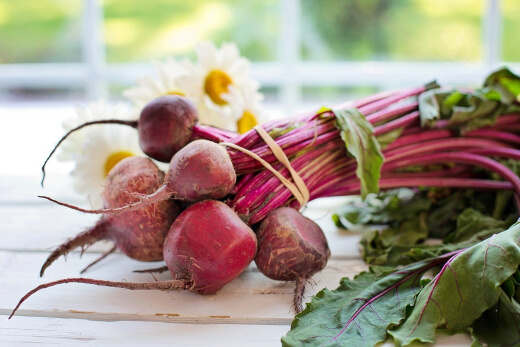
Let us Start Drinking Beetroot Juice
So you’ve read and assessed the beetroot juice health benefits, but what now? How much should your drink? When should you drink it? How do you prepare beetroot juice?
Next up, when should you drink beetroot juice?
Like with many juices, beetroot is best consumed first thing in the morning on an empty stomach for optimal beetroot juice health benefits from absorption of nutrients.
First things first, how much beetroot juice are we talking about drinking each day?
As with anything that we consume, different people have different tolerance levels for food and drinks. Generally, people begin with smaller amounts of beetroot juice mixed with other juices and adjust it over time. Many people do just fine drinking up to two cups per day. However much you choose to add into your diet, you will still reap many beetroot juice health benefits.
Finally, how to prepare beetroot juice?
Begin with four, medium sized fresh, raw beetroots. Leave the green, leafy tops on them to really get the most beetroot juice health benefits.
Okay, so if you’re familiar with beetroot at all, you’re well aware of its vibrant red color. Well, if you’ve never prepared fresh beetroot yourself, take some precautions before you end up with hot pink hands and countertops! Cover your work surface with waxed paper and put on some gloves. If you don’t have gloves, have a lemon on hand to help remove stains.
Wash beetroot with a soft vegetable brush. Soak beetroot in white vinegar for 15 minutes to kill pesticides.
Peel beetroot with a vegetable peeler if you desire. The peels can cause the juice to taste bitter, but you do lose some of the nutritional benefit if you choose to remove them.
Cut beetroot, including the pink stalks and green, leafy tops, into the largest size your juicer can handle.
Follow your juicers directions to make your juice and reap the many beetroot juice health benefits!
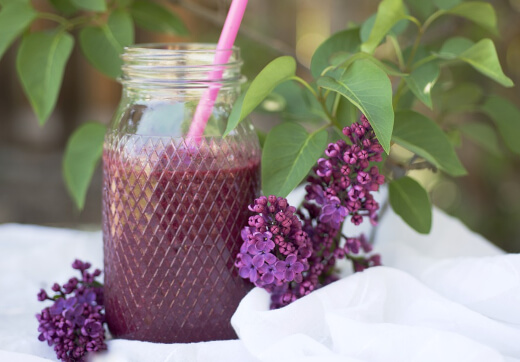
Throw a Fruit and Vegetable Party in your Juicer
If you’ve read some of our other articles on juices, then you know by now that one great way of really taking advantage of juicing fruits and vegetables is to mix them into one juice!
Beetroot works really well with several other fruit and vegetable combinations. See below:
- Add oranges and ginger
- Add red cabbage, cauliflower and cucumber
- Or another combination with orange and ginger, also add kale, apple and carrot for an even bigger flavor punch!
Just remember, the more fruits and vegetables you play around with, the more combinations of both flavor and nutrition!
That Finishes Our Beetroot Juice Health Benefits Guide
Beetroot is definitely among the new, yet very old, crop of superfoods to get your hands on! Drink beetroot juice on its own or combine it with other fruits and vegetables to up your juicing game right away! Run, don’t walk, to the market today to grab some beetroot and take advantage of the many beetroot juice health benefits for your body!

